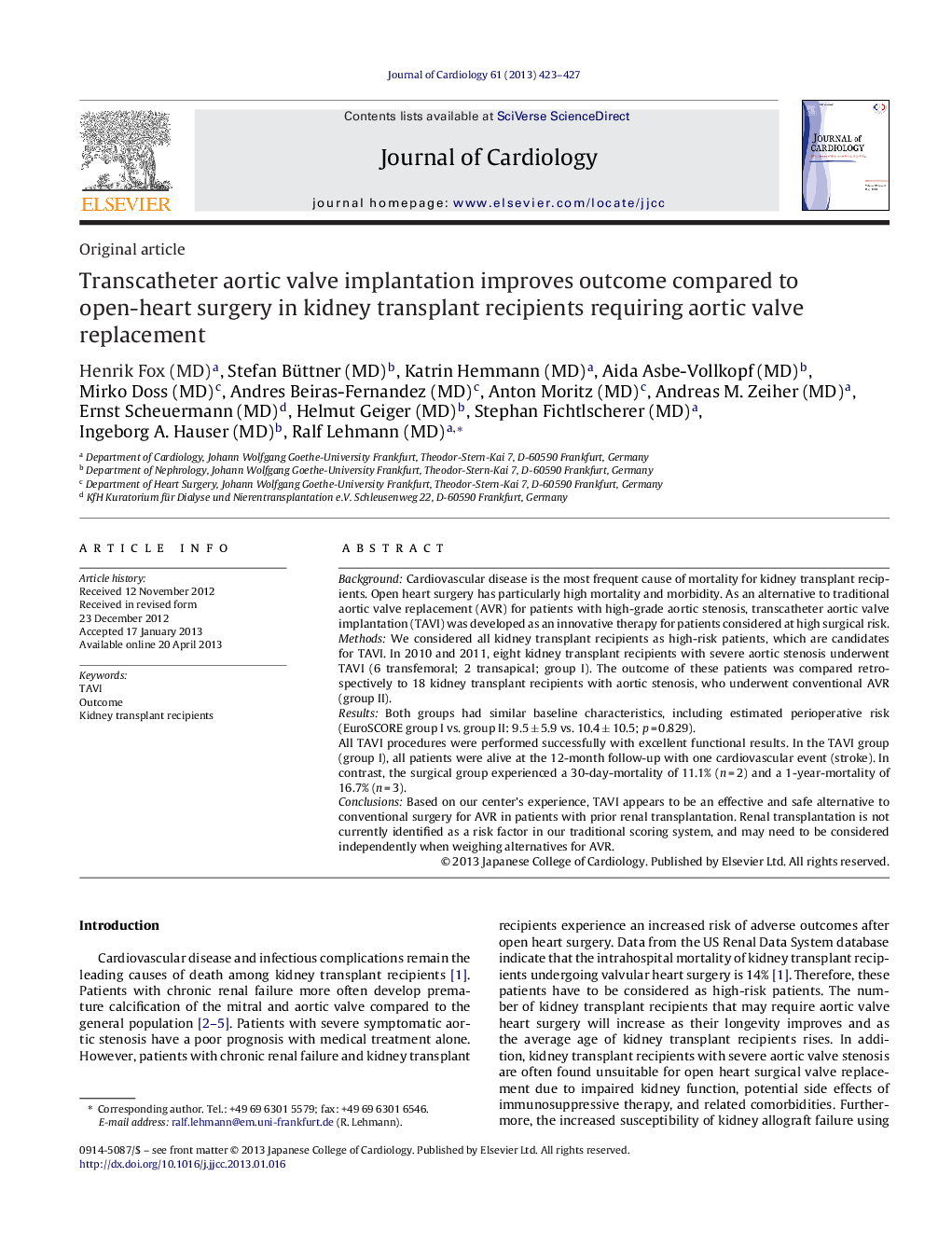| Article ID | Journal | Published Year | Pages | File Type |
|---|---|---|---|---|
| 5984336 | Journal of Cardiology | 2013 | 5 Pages |
BackgroundCardiovascular disease is the most frequent cause of mortality for kidney transplant recipients. Open heart surgery has particularly high mortality and morbidity. As an alternative to traditional aortic valve replacement (AVR) for patients with high-grade aortic stenosis, transcatheter aortic valve implantation (TAVI) was developed as an innovative therapy for patients considered at high surgical risk.MethodsWe considered all kidney transplant recipients as high-risk patients, which are candidates for TAVI. In 2010 and 2011, eight kidney transplant recipients with severe aortic stenosis underwent TAVI (6 transfemoral; 2 transapical; group I). The outcome of these patients was compared retrospectively to 18 kidney transplant recipients with aortic stenosis, who underwent conventional AVR (group II).ResultsBoth groups had similar baseline characteristics, including estimated perioperative risk (EuroSCORE group I vs. group II: 9.5 ± 5.9 vs. 10.4 ± 10.5; p = 0.829).All TAVI procedures were performed successfully with excellent functional results. In the TAVI group (group I), all patients were alive at the 12-month follow-up with one cardiovascular event (stroke). In contrast, the surgical group experienced a 30-day-mortality of 11.1% (n = 2) and a 1-year-mortality of 16.7% (n = 3).ConclusionsBased on our center's experience, TAVI appears to be an effective and safe alternative to conventional surgery for AVR in patients with prior renal transplantation. Renal transplantation is not currently identified as a risk factor in our traditional scoring system, and may need to be considered independently when weighing alternatives for AVR.
